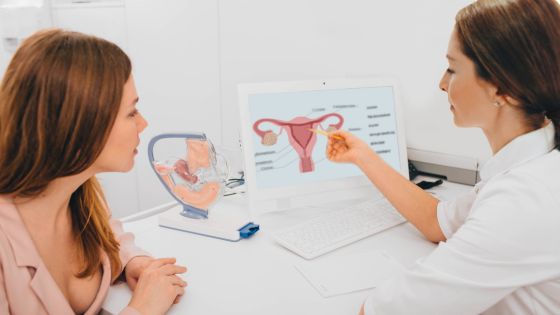Maintaining your overall health is a top priority, and for women, this includes scheduling regular visits to a gynecologist. While some women may feel comfortable discussing reproductive health with their primary care physician, seeing a specialist for specific concerns is essential.


In this article, you will explore the role of a gynecologist, the health issues they can help with, and the signs that it’s time to make an appointment.
What Does a Gynecologist Do?
Role of a Gynecologist in Women’s Health
A gynecologist is a medical professional who specializes in women’s reproductive health. They perform various diagnostic tests and procedures, such as Pap smears, pelvic exams, and pregnancy-related care.
Types of Health Issues a Gynecologist Can Help With
Some common health issues that gynecologists can help with include:
- Uterine fibroids
- Endometriosis
- Polycystic ovary syndrome (PCOS)
- Ovarian cysts
- Menstrual irregularities
- Contraception management
- Menopause symptoms
What to Expect During a Visit to the Gynecologist
During your first visit to a gynecologist, you will be asked about your medical history, including your menstrual cycle, sexual history, and previous pregnancies. You will also undergo a physical examination, including breast and pelvic exams.
A test that may seem a little invasive is a Pap Smear where your gynecologist will collect cervix cells to take to the lab for further analysis. This test can help detect abnormal cell changes that may indicate cervical cancer.
8 Signs It’s Time to Visit Your Gynecologist
1. Irregular Menstrual Cycle
If you notice that your menstrual cycle has become irregular, seeing a gynecologist is essential. An irregular cycle can signify hormonal imbalances or other underlying health conditions. If you’re suffering from an extreme menstrual condition like uterine fibroids that may be affecting your cycle, you might need to seek treatment. Talk to your doctor about your options regarding uterine fibroid treatment in Memphis, TN.
2. Painful or Uncomfortable Intercourse
Various factors, including infections, endometriosis, or uterine fibroids, may cause pain during or after sex. A gynecologist can help determine the cause and recommend the appropriate treatment.
3. Abnormal Vaginal Discharge or Odor
Changes in vaginal discharge or odor can signify infection or other issues. If you notice a persistent, unusual smell or change in discharge, it’s time to see a gynecologist.
4. Unusual Bleeding or Spotting
If you experience bleeding between periods or after intercourse, it’s essential to consult a gynecologist. Unusual bleeding can be a symptom of several conditions, including uterine fibroids or cancer.
5. Breast Lumps or Changes
Breast exams are essential to women’s health, and any lumps or changes in breast tissue should be discussed with a gynecologist.
6. Pelvic Pain or Pressure
Persistent pelvic pain or pressure can indicate several conditions, including uterine fibroids, endometriosis, or ovarian cysts.
7. Changes in Menstrual Flow or Duration
If your periods become significantly heavier, lighter, or longer lasting, seeing a gynecologist is essential. These changes can signify hormonal imbalances or other underlying health conditions.
8. Menopause Symptoms
Menopause can cause various symptoms, including intense mood swings, poor vaginal health such as dryness and even hot flashes. A gynecologist can help you manage these symptoms and recommend appropriate treatments.
Things to Consider Before Meeting Your Gynecologist
How to Prepare for Your Appointment
Before your appointment, list any symptoms, concerns, or questions. It’s also helpful to bring a record of your menstrual cycles and any medications or supplements you’re taking.
Questions to Ask Your Gynecologist
Prepare a list of questions to ask your gynecologist during your appointment, such as:
- What tests or exams should I expect during this visit?
- What treatment options do I have?
- Are there any changes I can make in my lifestyle?
- What are the potential side effects of any prescribed medications or treatments?
Understanding Treatment Options
Discuss options for any conditions diagnosed and work with your doctor to determine the best course of treatment based on your symptoms and overall health.
Conclusion
Regularly visiting your gynecologist is one of the most important things you can do for your long-term health as a woman. Schedule an appointment immediately if you notice any changes in your menstrual cycle, experience pain or discomfort in your genital area, or are going through menopause.
Your gynecologist can help evaluate any issues, ease your concerns, and recommend an effective treatment plan so you can feel your best.






















